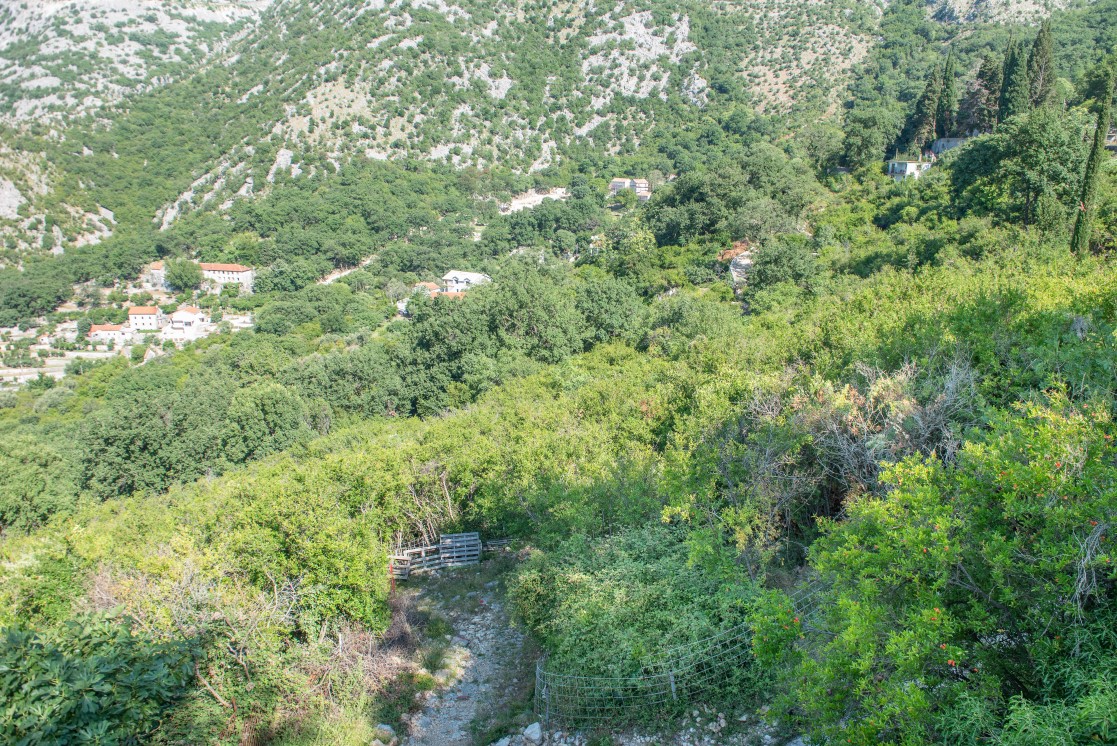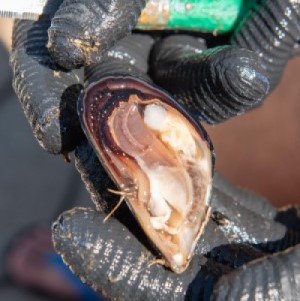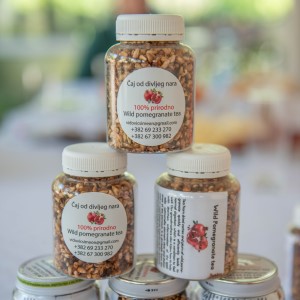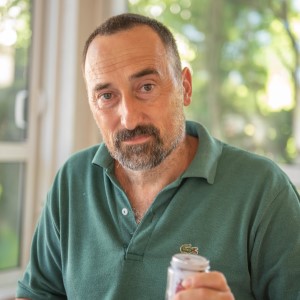
Family farm Vidović
Rural tourism / Family farm Vidović
In Nature We Trust
The family farm of Simeon Vidović, spreading on 2,5 ha, with over 4.000 wild and cultivated pomegranate trees planted, is located in Smokovac, near the fork of two old Austro-Hungarian roads (now hiking trails), one leading to Crkvice and the other to Ledenice
By Vanja Petrović and Emilija Radulović Photo: Ranko Maraš
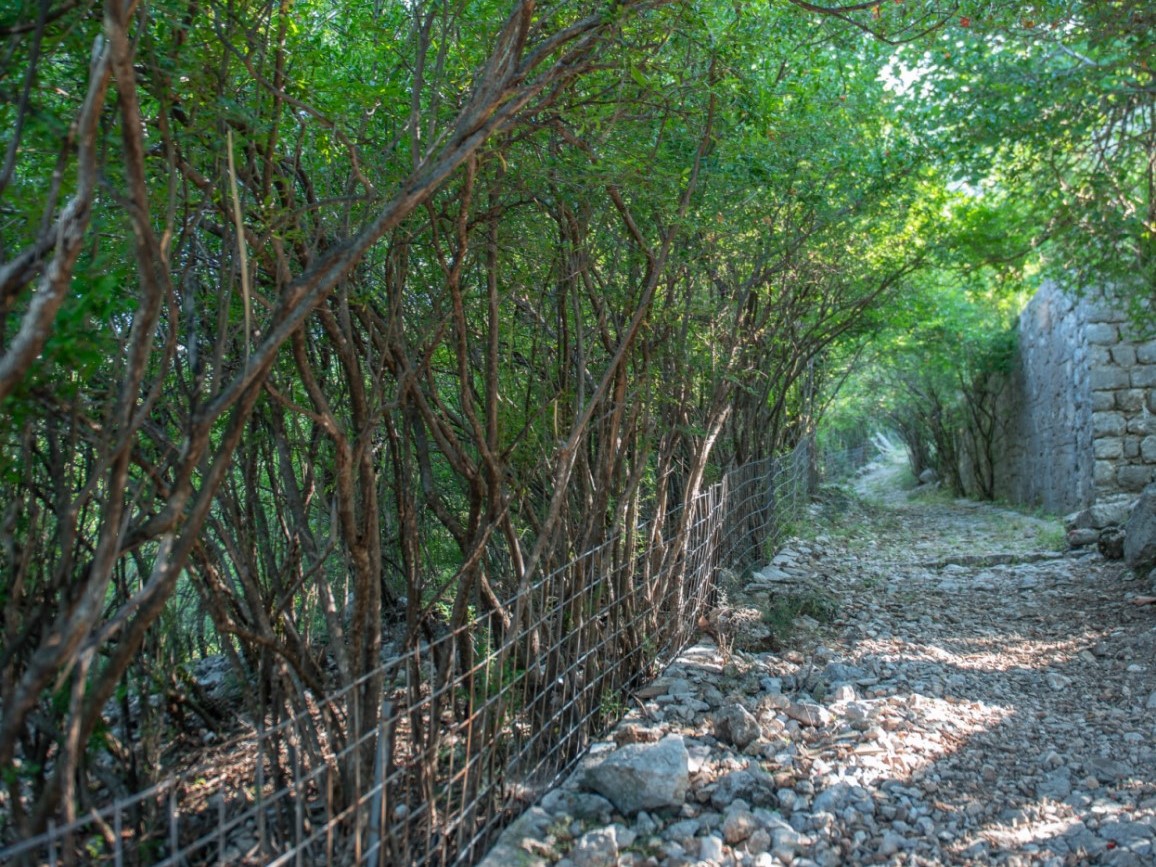
Old Austro-Hungarian road and the family farm Vidović
Near the property there is an Austro-Hungarian tavern, a typical house in this area with a yard in which there is a threshing floor.
There are also towers of Radović, and what makes Smokovac recognizable is the spring with two “heads”. One is from the time of Austro-Hungarian rule and the other from the time of the Kingdom of Yugoslavia.
The farm, with a 90 years long tradition, tells a story of man and nature and mutual giving. Simeon Vidović’s love for agriculture was instilled from an early age. But his love for natural and cultural heritage is even greater. He spends up to 14 hours every day on the property. Plans and ideas are not lacking, he says. Climate is mostly favourable.
The wild pomegranate is “God’s gift” – one of the oldest fruit trees whose medicinal properties were described in ancient times, and to which he is most dedicated.
As Simeon explains: “It is a plant that gives a lot with very little work. I like farming, but I love plants especially. I watched a French science channel, and discovered about the way people make wine from wild pomegranate in the Caspian Sea. The story goes like this: according to the holy book of the Koran and the Armenian Apostolic Church, Adam and Eve did not come out of heaven because of an apple, but because of a wild pomegranate.
The wild pomegranate is a symbol of health at weddings, and in our country people used to congratulate by bringing it with a bottle of rakija. In Armenia, at weddings and festivities, wild pomegranate is given as a symbol of health. “
It is an excellent source of vitamins C and B5, and one of the best sources of polyphenols. Its application is both preventive and curative. It has been proven that a glass of pomegranate juice has a strong antioxidant effect, acts as immunity booster and helps with wide range of health disorders. Wild pomegranate preserves dental health, slows down aging, preserves heart and blood vessel health.
It is also used in the food industry. From the fruits, pits and peel of pomegranate can be made tea, jam, juice, syrup, wine, liqueur, brandy and oil. This farm is recognizable by wild pomegranate tea as well as juices made of wild pomegranate, elder or wild orange.
Simeon selflessly talks about his work, along the way revealing the secrets of a quality product. The hardest work is in the fall, when is the harvest. At that time all the family members help, even the youngest ones. The ripe fruit is mechanically processed and pure wild pomegranate juice is obtained.
It is important to choose the right harvest period. The best is November, but before heavy rains, when the juice gets the most intense and balanced taste quality, and healing properties.
Here is a story about wild pomegranate tea and its preparation:
“The tea is made from pomegranate seeds and bark that is chopped and dried. It’s my late grandmother’s recipe. She told me about it when I was 6-7 years old. We always kept one quantity hidden in the house. “
I asked her one day: “What’s that up in the shelf?” – That, my son, is for God forbid. – God forbid? – If, God forbid, one’s stomach hurts, it’s one’s best medicine!
Simeon explains that it took him 30 years to understand the meaning of his grandmother’s words. He learned a lot from Russian medical journals about the wild pomegranate drink and its medical effect: “Believe me, a stomach ulcer heals in 7 days.”
Here is the recipe: Put a teaspoon of pomegranate beans, in 500 ml of cold water, and cook it until it begins to boil. It should get the beer color. Cool down and drink all day. It can also be more diluted. Every day, 5 days in a row, half a liter a day. “Sugar must not be put in it.”
Simeon sells his products in the family house. In addition to wild pomegranate tea, and wild pomegranate juice, he also makes elder, Cornelian cherry and wild orange juice.
As Simeon says, over 20 products can be made from wild pomegranate. In the east it is also used as a spice. He believes that its potential is not fully used in our land, and states that “we only see a piece of the whole”. His expectations are not high and mostly concern education and a desire for new knowledge and technologies. Examples of good practice in the country and in the region as well as organized visits to such farms would help in exchanging experiences and improving skills and knowledge.
Simeon mentions his good cooperation with Monteorganica, whose consulting service team regularly visits his farm, as well as with the Ministry of Agriculture and Rural Development and with the local body in charge of this area.
They currently have 5 cows and one bull, so you can also try cheese they make.
They plan to return to the breeding of the old breed of cow “buša”, which has become a rarity today, and which he fondly remembers from his childhood. Currently, the “open” barns are in the preparation phase, in accordance with the recommendations of the Ministry.
Simeon speaks with great respect about nature and ancient ways and values. He wants his farm to become organic. He strongly believes in the close connection between tourism and organic production, and concludes that it may spur the future development of tourism in Montenegro.



